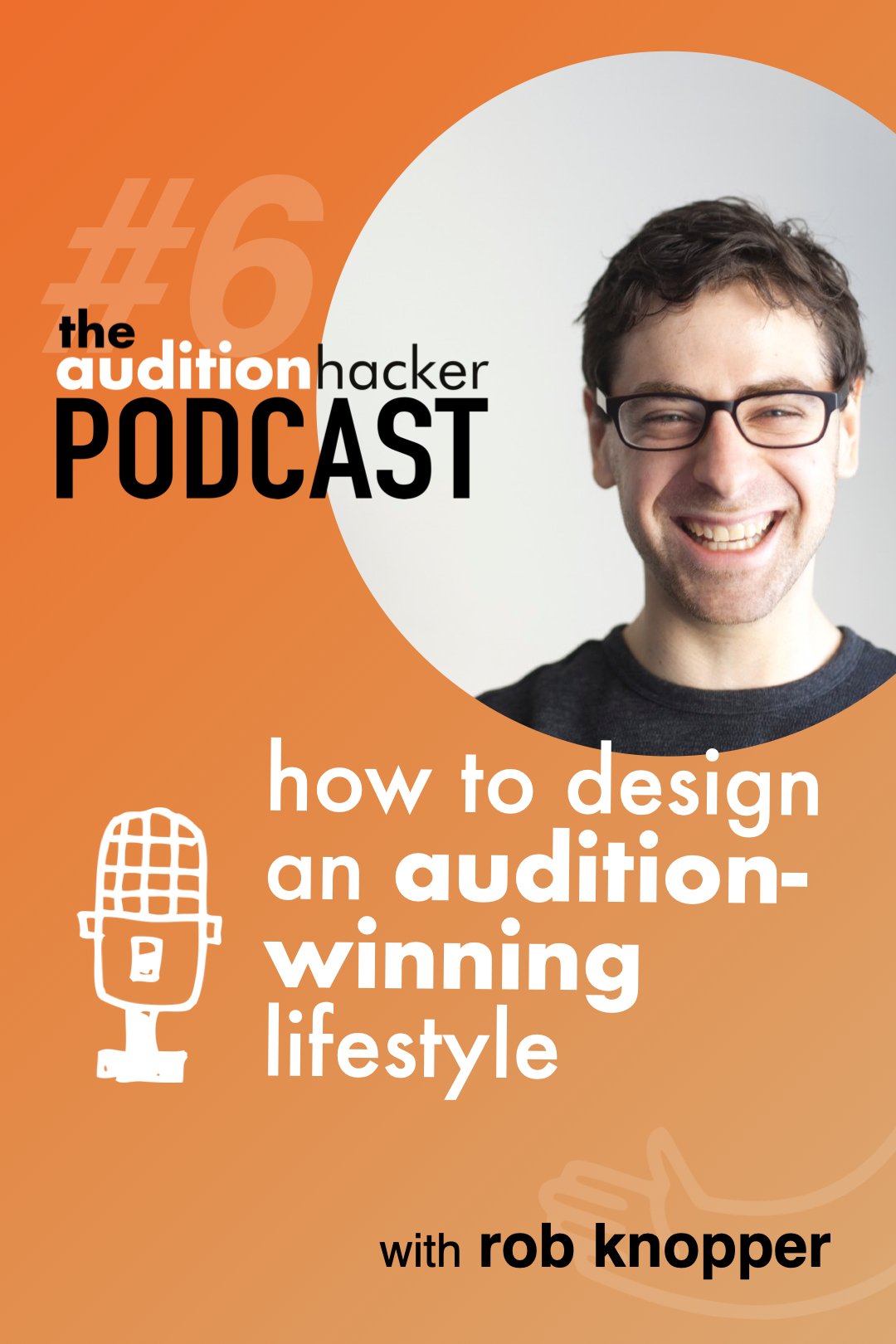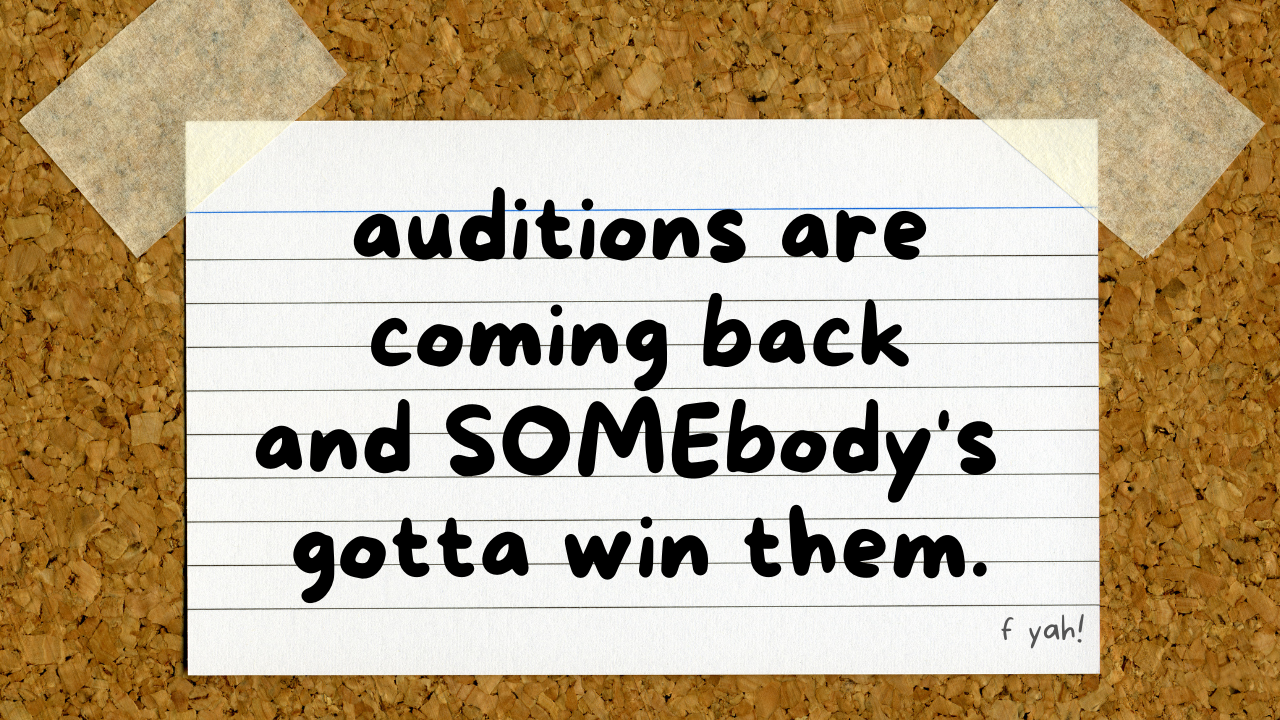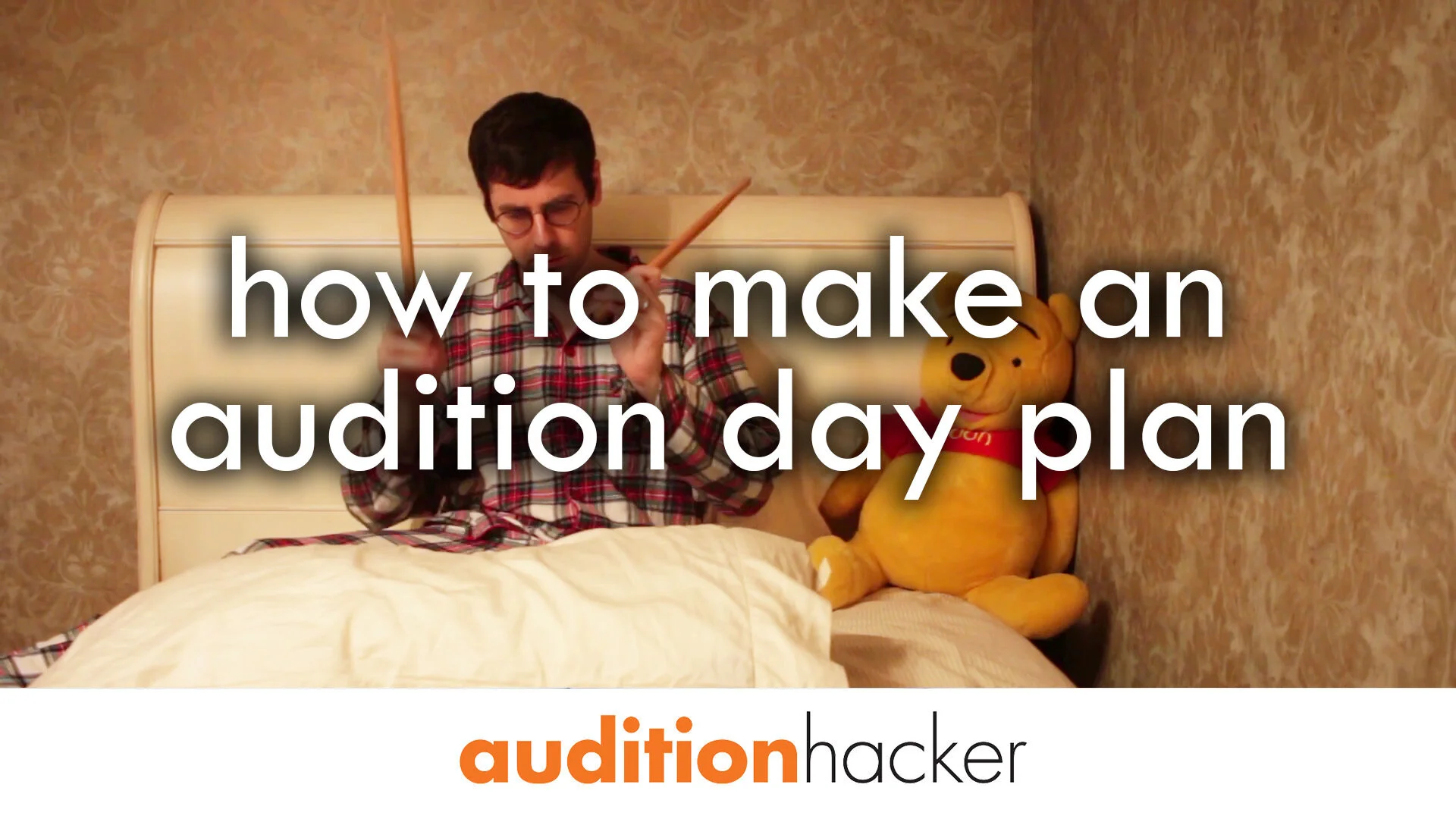what if you’ve tried mock auditions, but they don’t work?
yesterday we talked about the importance of doing mock auditions to prepare for an audition. but just doing mocks isn’t going to solve all your problems.
there might be 100 or more musicians applying to take an audition for one position in an orchestra. and mock auditions aren’t exactly a secret... most of those players will probably try to do some sort of mocks beforehand.
but the big difference in how those 100 musicians will benefit from their mock auditions is exactly how they carry out the mocks. each and every decision they make throughout the mock process will affect their overall level of preparedness.
how many mocks will you do? will you do them every day? how far in advance will you start?
who will you play for? your friends? people who play other instruments?
what are the exact steps you go through in your mock audition? what’s your process for before, during, and after?
if your mock auditions don’t seem to help you feel confident in the audition, it’s likely that you haven’t set them up effectively.
and it’s all in the details. the details of your mock audition process will decide how you train yourself for audition day. they’ll decide the quality of comments you’ll get from your listeners and how you incorporate those comments.
it's episode #8 of the auditionhacker podcast, and i'll go over my best methods for getting better feedback.
it’s episode #7 of the auditionhacker podcast, and i’ll go over:
how i spent 6 months perfecting the 12 delécluse études,
the special strategy i used in preparation, called “the magical shrinking self-recording workflow”,
how preparation needs to be structured for a recording vs. a live audition, and
my best tips and strategies to make a recording session go smoothly.
it’s episode #6 of the auditionhacker podcast, and i’m going over:
the legendary and now-defunct practice of challenges,
adopting the olympian mindset as a musician, and
the most accurate indicator of future audition success.
i've worked with hundreds of musicians on audition preparation. and nothing - NOTHING - has been as effective and life-changing as when they start self-recording the right way.
imprecise rhythm is something that can get you cut from an audition IMMEDIATELY (regardless of your instrument). and great rhythm is something that an audition committee can sense, both consciously and subconsciously. hearing someone play in the pocket just feels good.
well, i have a few tricks up my sleeve to straighten out my rhythm, and today i'm sharing one of the most effective strategies.
in today's episode, i'll go over:
my audition journey and how i ended up winning the met opera job,
3 of my favorite audition hacks, and
the one thing that's so much more meaningful than the result of the audition.
things i do on audition day:
warm up by playing on the hotel pillow,
watch vast amounts of tv shows on my phone, and
never drink coffee.
when i was in detroit in february i got to interview three great DSO musicians on how they approach audition day. pretty fascinating to see how their approaches are so different from each other.










in 2019, a cellist named maria reached out to me about her audition struggles. on paper, she was the “worst audition candidate ever” (her words). she had 2 small children, a full-time teaching job, and hadn’t taken an audition in 4 years.